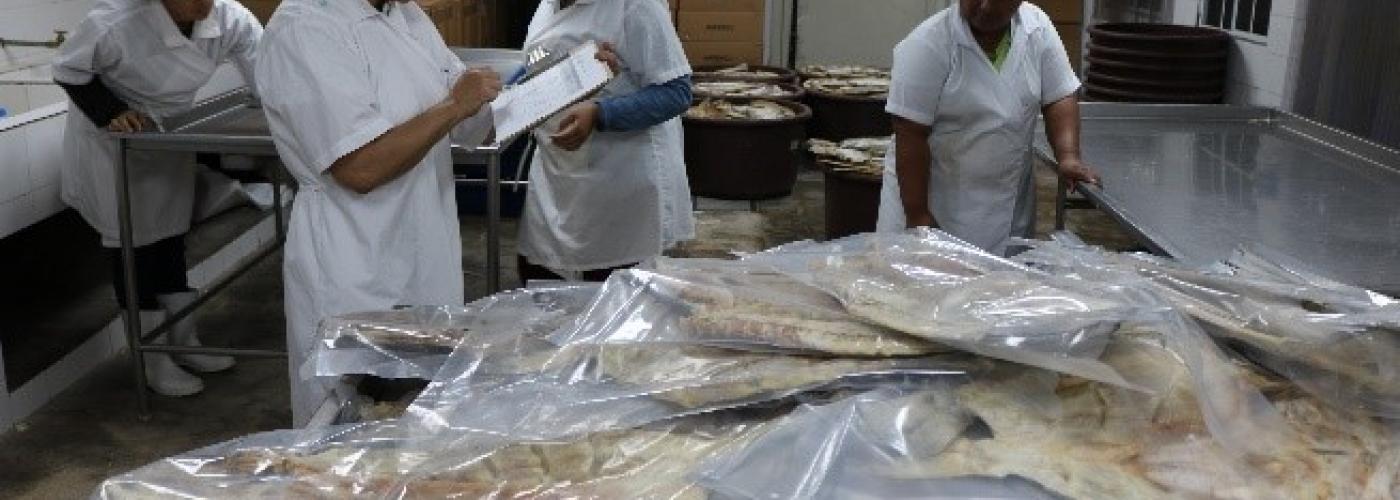Fishing for a Better Future in El Salvador
Image

This post was authored by Carlos Marroquín, Palladium
Francisca Noemí Benitez was born in El Cuco Beach in eastern El Salvador, an area that is considered to have a high level of undocumented migration to the United States. With a lot of effort from her family, she migrated to Europe at the age of 17 in search of a better life. Nevertheless, she had to work eight hours a day in a restaurant, study, and learn to speak several languages, forcing her to sleep only five hours a day and to spend a high percentage of her salary to pay back the costs of her travel. After 12 months, she decided to return to El Salvador. “Even with my experience, I had little hope of finding a decent job near my home,” Noemí explains. “And if that wasn’t enough, I became pregnant with my first child right about the same time but had a miscarriage. I felt hopeless.”
USAID launched the Economic Competitiveness Project in 2017 with the purpose of increasing the competitiveness of El Salvador’s key economic sectors to encourage private sector investment, innovation, and business expansion and thus foster economic growth and job creation.
The Economic Competitiveness Project signed a grant agreement with the Association of Artisanal Fishermen of El Cuco Beach (ASPESCU) in February 2019 to upgrade its plant facilities, purchase specialized equipment to pack the fish and increase their shelf life, and sell higher-quality fish, on average, at a better price than in 2018. Additionally, it received assistance to meet the quality and sanitary standards of the U.S. Food and Drug Administration. These allowed the fishermen’s association to increase its exports by overcoming the challenges of quality control, the need for new equipment, and sanitary standards to meet international demand and comply with the requirements of international markets.
As a result, ASPESCU’s demand increased and thus generated new jobs to meet it. Noemí got one of them. “I began working in ASPESCU in November 2019 preparing fish for export,” she says. “This job is important to me because I am pregnant again and this job makes me feel safe because it allows me to plan a better future for my son, to whom I can now give a home, education, and health.”
ASPESCU has been able to help fishermen and women in the area not only by providing them with employment opportunities, but also by expanding its network of suppliers among the local fishermen, increasing from 70 to 100 the number of families who now have a new source of income and tools to sell their product at a better price, creating game-changing conditions for people with limited prospects like Noemí.
In just one year after receiving support from the USAID Economic Competitiveness Project, ASPESCU doubled its export sales from $440,000 in 2018 to $850,000 in 2019. During 2019, for every 10 dollars that El Salvador exported in dried fish to the United States, five were generated by ASPESCU.
Noemí now looks to the future with great optimism, as does the community that now has opportunities. With USAID's support, El Cuco is turning into a sustainable seaside community. “As long as I have a job, my priority will be to live in El Salvador,” says Noemí.
Palladium implements the USAID Economic Competitiveness Project. Click the resource here to learn more about dry fish exports from El Salvador to the United States.

